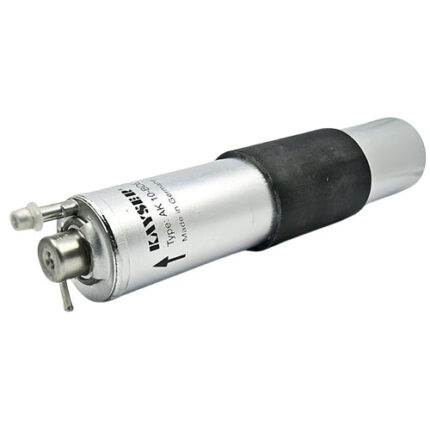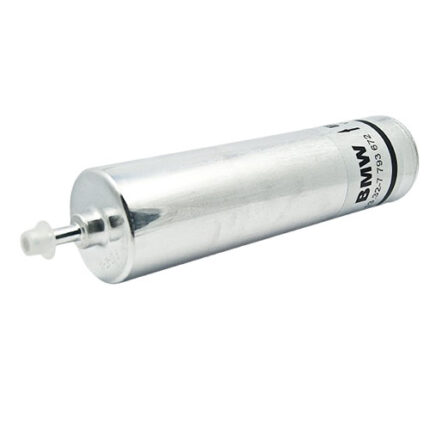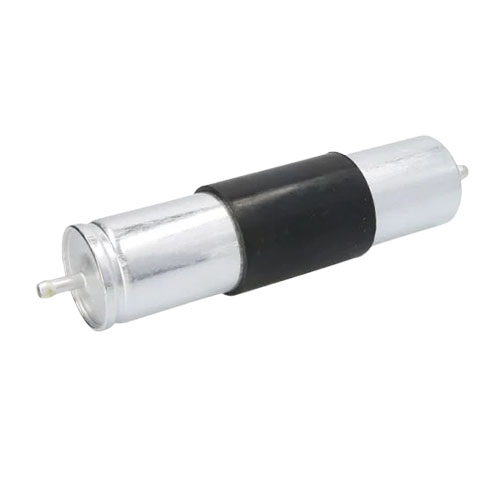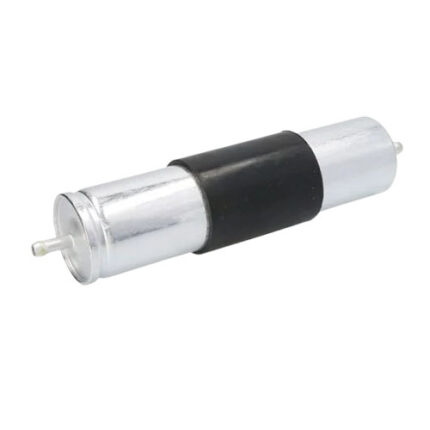-7%
Get BMW X5 E53 Fuel Filter 13327787477 in Kenya
A fuel filter is a crucial component in a vehicle’s fuel delivery system, designed to remove contaminants and impurities from fuel before it reaches the engine. Clean fuel is essential for optimal engine performance, fuel efficiency, and longevity. A clogged or failing fuel filter can cause engine misfires, poor acceleration, and starting issues.
This guide will cover:
What a Fuel Filter Does
Types of Fuel Filters
Key Benefits
Signs of a Failing Fuel Filter
Maintenance & Replacement
What is a Fuel Filter?
A fuel filter is a filtration device placed in the fuel line to prevent dirt, debris, rust, and other contaminants from entering the fuel injectors and engine. It ensures that only clean fuel reaches the combustion chamber, protecting the engine from potential damage.
Fuel can pick up contaminants from:
Dirty fuel tanks (at gas stations)
Rust and debris in the fuel system
Moisture contamination leading to fuel degradation
Without a proper fuel filter, these contaminants can damage fuel injectors, clog carburetors, and reduce overall engine performance.
Types of Fuel Filters
Fuel filters come in various designs, depending on fuel type, vehicle model, and engine configuration.
1. Inline Fuel Filter
Located between the fuel tank and the engine
Common in older and some modern vehicles
Can be replaced separately
Uses a metal or plastic housing
2. Cartridge Fuel Filter
Found in modern diesel engines
Contains a replaceable filter element
Mounted in a separate housing
Often equipped with a water separator
3. Spin-On Fuel Filter
Common in diesel trucks and heavy-duty engines
Designed like an oil filter
Easy to replace by unscrewing the old unit
Includes a built-in water separator
4. In-Tank Fuel Filter (Strainer)
Located inside the fuel tank
Acts as a pre-filter before fuel reaches the main filter
Not designed for frequent replacement
Often built into the fuel pump assembly
5. Magnetic Fuel Filter
Uses magnetic fields to capture metallic contaminants
Less common but useful for industrial and performance applications
How Does a Fuel Filter Work?
The fuel filter operates as a barrier between the fuel tank and the engine, trapping dirt, rust, and impurities while allowing clean fuel to pass through.
Fuel enters the filter from the fuel tank.
Contaminants are trapped by the filter media.
Clean fuel flows out towards the fuel injectors or carburetor.
If equipped, a water separator collects excess moisture.
A high-quality fuel filter ensures smooth engine operation and prevents fuel system damage.
Benefits of a Well-Maintained Fuel Filter
A clean and properly functioning fuel filter provides several key benefits:
Improves Fuel Efficiency – Ensures clean fuel delivery, reducing engine strain.
Protects Fuel Injectors & Engine – Prevents clogging and potential damage.
Enhances Engine Performance – Provides a steady flow of fuel for smooth acceleration.
Prevents Fuel System Contamination – Stops rust, dirt, and debris from reaching the engine.
Reduces Engine Misfires & Hesitation – Ensures optimal combustion by maintaining fuel flow.
Ignoring fuel filter maintenance can lead to fuel starvation, poor acceleration, and costly engine repairs.
Common Signs of a Failing Fuel Filter
A clogged or failing fuel filter can cause noticeable performance issues.
Difficulty Starting the Engine – Restricted fuel flow prevents proper combustion.
Engine Stalling – Dirty fuel injectors cause random engine shutdowns.
Loss of Power While Driving – Poor fuel delivery affects acceleration.
Check Engine Light (CEL) Turns On – The ECU detects fuel system irregularities.
Rough Idling & Hesitation – Inconsistent fuel supply disrupts engine operation.
Poor Fuel Economy – A restricted filter forces the fuel pump to work harder.
If you experience these symptoms, it’s time to inspect and replace the fuel filter.
Fuel Filter Maintenance & Replacement
How Often Should You Replace a Fuel Filter?
Recommended Replacement Interval:
Petrol Vehicles: Every 30,000 – 50,000 km (18,000 – 31,000 miles)
Diesel Vehicles: Every 20,000 – 30,000 km (12,000 – 18,000 miles)
However, driving conditions, fuel quality, and vehicle type affect replacement frequency.
DIY Fuel Filter Replacement (For Inline & Spin-On Filters)
Tools Needed:
Wrench Set & Screwdrivers
Fuel Line Disconnect Tool
Safety Glasses & Gloves
Catch Pan for Fuel Spillage
Step-by-Step Guide
Relieve Fuel Pressure – Disconnect the fuel pump fuse and start the engine until it stalls.
Locate the Fuel Filter – Usually along the fuel line under the car or in the engine bay.
Disconnect Fuel Lines – Use a fuel line disconnect tool if needed.
Remove the Old Fuel Filter – Loosen mounting bolts and carefully take it out.
Install the New Fuel Filter – Ensure correct orientation (marked IN/OUT).
Reconnect Fuel Lines – Secure all fittings properly.
Start the Engine & Check for Leaks – Ensure smooth operation.
Safety Tip: Work in a well-ventilated area and keep fire hazards away.
Fuel Filter Replacement for In-Tank Filters
Requires removing the fuel pump assembly, so professional servicing is recommended.
Choosing the Right Fuel Filter
When purchasing a replacement fuel filter, consider:
Vehicle Compatibility – Ensure it fits your car’s make, model, and engine type.
Filter Media Quality – Choose filters with high-efficiency filtration.
OEM vs. Aftermarket – OEM filters ensure perfect fitment, while premium aftermarket brands can offer better filtration.
Micron Rating – Lower micron ratings (e.g., 5-10 microns) provide finer filtration.
Fuel Type – Diesel filters require water separation, while petrol filters focus on particle filtration.
Popular Fuel Filter Brands: Bosch, Mann-Filter, Wix, Mahle, ACDelco, and Fram.
Frequently Asked Questions (FAQs)
1. What Happens If You Don’t Replace a Fuel Filter?
A clogged fuel filter restricts fuel flow, leading to poor acceleration, rough idling, and possible engine failure.
2. Can a Fuel Filter Affect Fuel Pump Performance?
Yes! A blocked fuel filter forces the fuel pump to work harder, increasing wear and potential failure.
3. Does a Dirty Fuel Filter Cause Black Smoke?
Yes, especially in diesel engines, as improper fuel combustion leads to excess soot production.
4. Will a New Fuel Filter Improve Performance?
Absolutely! Replacing a dirty filter restores engine efficiency, fuel economy, and smooth acceleration.
Follow us on Facebook for more parts.





Reviews
Clear filtersThere are no reviews yet.